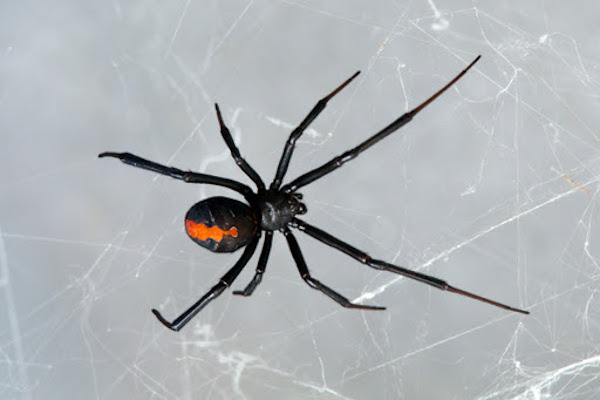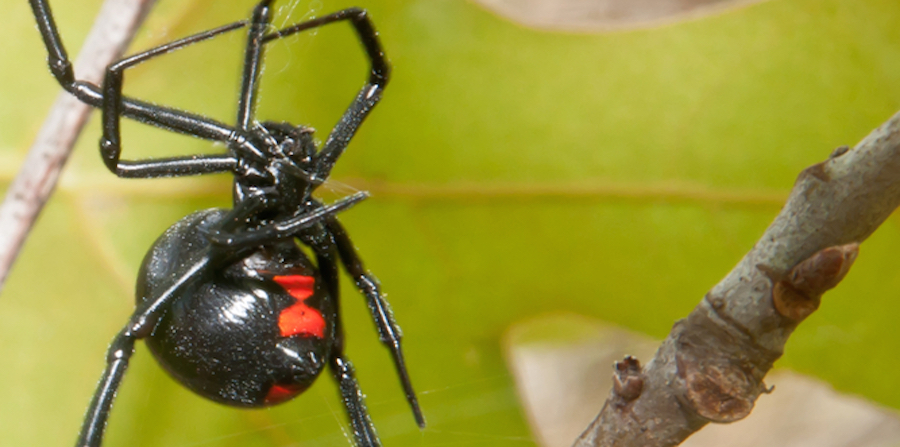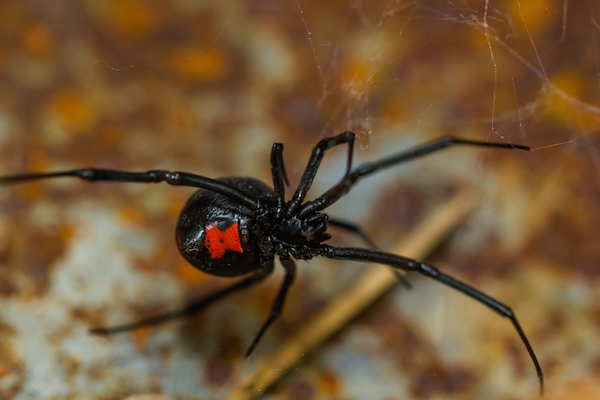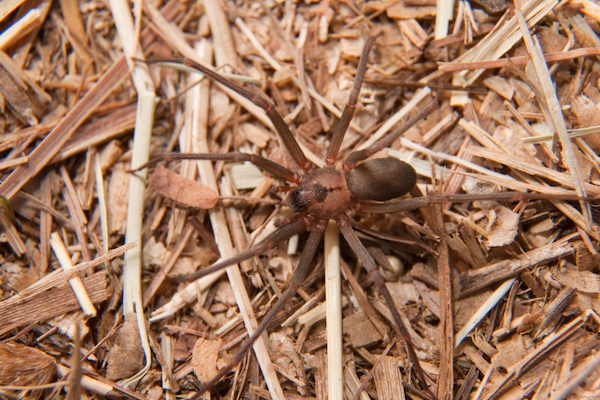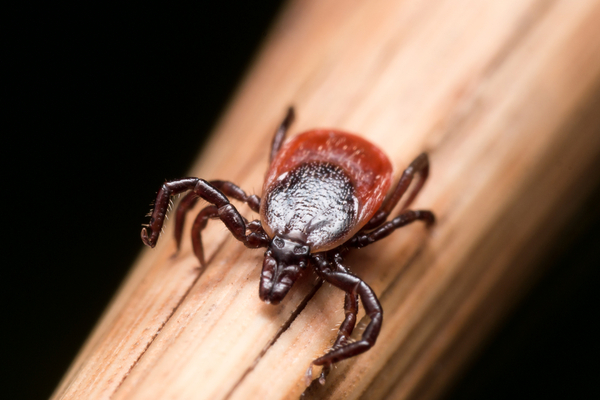Animal poison tends to be as provocative as it is scary. Somebody asks us about poison almost every single day. Usually by asking “is that thing poisonous?!” The answer is almost always “no…” almost always. There are several poisonous animals and pests in Michigan. Some of them are even highly poisonous.
We think one of the reasons why animal venom is so feared is because it’s not very understood. Pest venom isn’t a human killing superweapon. In fact, it’s usually not even really meant for use on humans. Instead, poison is a natural part of some animal adaptations. They use it to hunt, defend themselves, and scare away predators. Here are some examples of the most poisonous pests in Michigan, along with what their poison is specifically. Hopefully, understanding poison a little better will help make it a lot less scary.
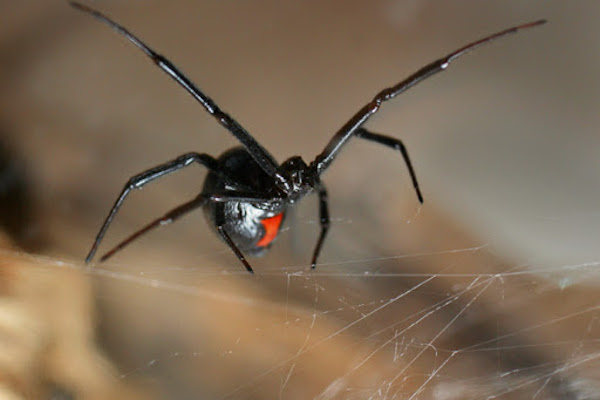
Black Widows in Michigan
The Northern black widow (Latrodectus variolus) is the only venomous spider native to Michigan (Brown recluse spiders are not native). Like other black widows, it’s also one of the most venomous spiders in the country. Widow venom is fifteen times more toxic than rattlesnake venom, though spiders deliver far less in a given bite. In terms of pure potency, widows are probably the most venomous animal in Michigan.
All Widows possess venom called latrotoxin. Latrotoxins act on presynaptic nerve membranes and can trigger an illness called “latrodectism.” Latrodectism triggers a release of the neurotransmitters acetylcholine, norepinephrine, and GABA. Releasing these neurotransmitters triggers pain, followed by muscle cramps, sweating, nausea, and possible vomiting. Severity and length of symptoms
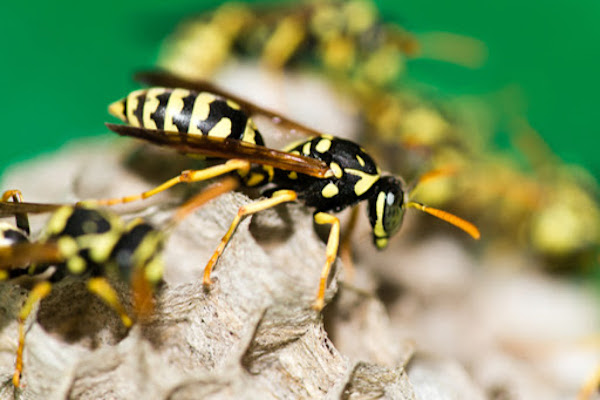
Paper Wasps in Michigan
People tend not to think of wasps as “poisonous,” but their venom is why stings hurt! The most venomous wasp in Michigan is also our most common: the European paper wasp (Polistes
Paper wasp venom is painful because it targets the nervous system on a cellular level. Enzymes and proteins in the venom break down cell membranes when introduced into the bloodstream. When neuron cells break down, they send a signal that they’re damaged–pain–to the brain. Wasp stings also deliver norepinephrine, which stops blood flow to prevent the venom’s potency from deluding in the bloodstream. Finally, they introduce hyaluronidase and MCDP to spread venom further around the site of the sting.
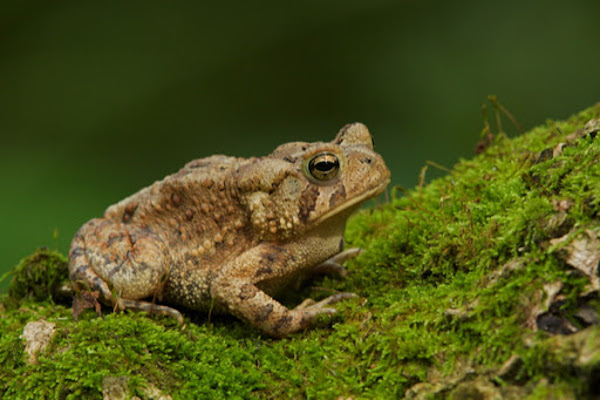
Eastern American and Fowler’s Toads
Believe it or not, Eastern American (A. a.
Bufotoxin is more deadly to small predators than it is to people. When ingested, Bufotoxins can trigger serious cardiac, neurological, and gastrointestinal problems. Eventually, Bufotoxin can even target the central nervous system and cause heart attacks or seizure. When merely handled, however, Bufotoxin usually only causes a mild skin rash or allergic reaction. Bufotoxin may also irritate eyes and mucous membranes on contact. Don’t let your pets chase, kill, or eat the little toads in your yard!
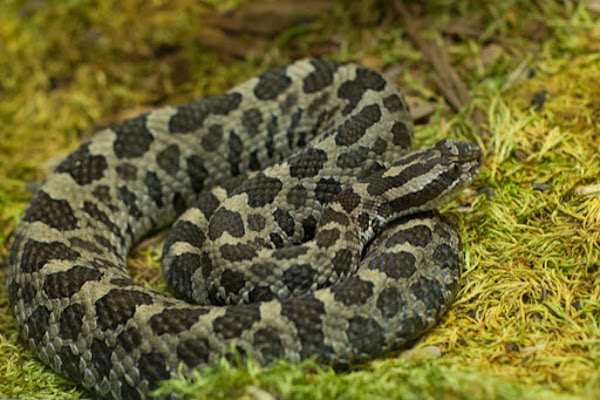
Eastern Massasauga Rattle Snake
The Eastern massasauga rattlesnake (Sistrurus catenatus) is the only venomous snake in Michigan. Massasauga are capable of injecting a highly toxic venom through their bites. In fact, massasauga venom is considered more potent than most other rattlesnake venom. Like black widow spiders, however, massasaugas generally inject less venom during a bite than most snakes. Venom is a valuable resource for rattlesnakes, and its resource-intensive to reproduce. Consequently, most massasauga bites are “dry bites,” which contain no venom.
Eastern massasauga venom contains a specialized digestive enzyme. When this enzyme enters the bloodstream, it disrupts blood flow and prevents blood clotting. When venom is injected into the smaller prey massasauga feed on, it causes fatal internal bleeding. It can also incapacitate prey and destroy tissue. Massasauga venom is not fatal to humans, but it can be extremely harmful. Fortunately, massasauga bites are rare. Massasaugas are highly cautious, even shy or docile snakes. They would avoid rather avoid or run from a conflict than lash out.
As you can see, venomous pests use their venom for hunting small prey and defending themselves. None of Michigan’s pests are going to go out of their way to poison you; just the opposite, in fact. As always, it doesn’t hurt to be aware of venomous pests, but you shouldn’t have to fear them.
Of course, that’s easier said than done… especially if poisonous pests are around your home. If you’re worried you have a potentially-precarious pest predicament, give Griffin a call right away. We have everything we need to keep you safe from Michigan’s most poisonous pests.

